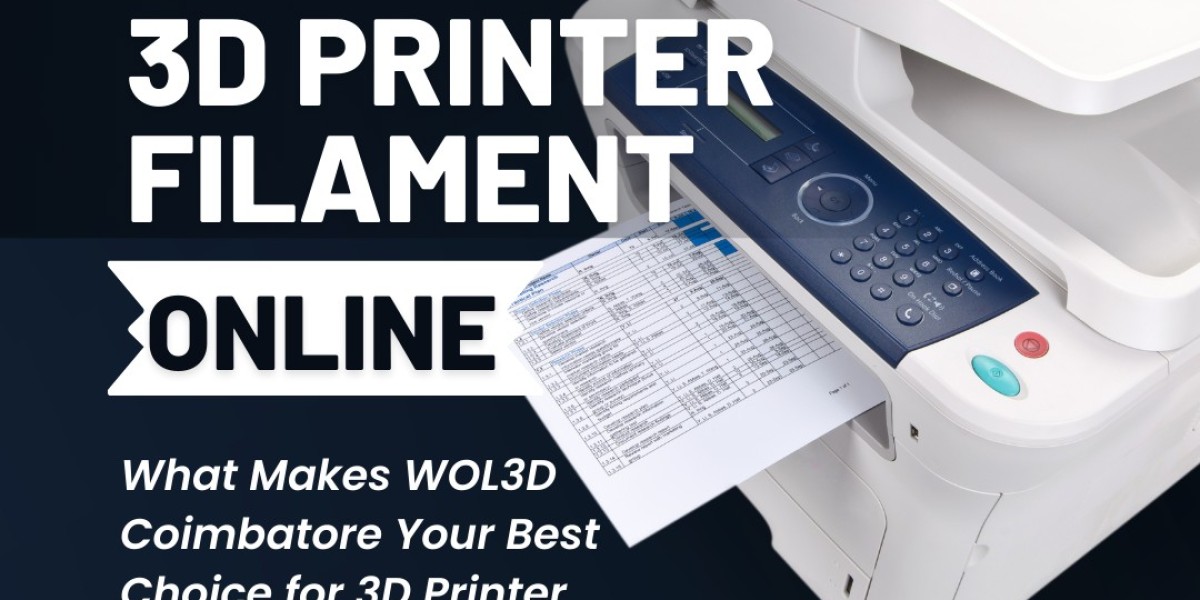Wouldn’t it be staggering if everyone who was searching for information about Music Publishing Management Software discovered what they were searching for?
In addition to the obvious advantage of an additional revenue stream, licensing deals provide independent labels with unique opportunities to reach new audiences in foreign markets that may not be accessible via traditional channels. Where traditional media in foreign markets, such as radio, may not be receptive to new artists from other countries, licensing an artist’s music for use in film, television, or advertising can bring the music to a new audience. No matter what your skills or talents, you can almost always find a way to parlay them into a music business career. Your success as a songwriter depends entirely on you. The knowledge is available and the opportunities are out there – you just have to find them. Get to work and go make something happen. Whether or not artists are on-board with streaming services, it appears they're here to stay. Streaming services provide a way for these users to eliminate the guilt they sometimes feel by not financially supporting the artists they like. Today, most recording agreements are structured as funds. A fund is a set amount of money, which includes both recording costs and any amounts that may be payable to the artist as an advance (the term recording costs also includes the producer’s advance). Whatever the artist doesn’t spend on recording costs goes into his or her pocket. Capturing your value and talent as a songwriter is reliant upon knowing how each digital distributor works, and how they pay you. If your songs start to earn streams and sales, you'll get a quarterly check or direct deposit, no different than any corporate job. 
A master use license will permit use of a pre-existing record with the original artists. To be eligible for royalties, musicians must be confirmed as the song's ‘publishing rights holder'. Turning your passion for music into a career has a number of implications that many people may not realize. Music becomes the way in which you're going to pay rent at the end of the month instead of a way to relax at the end of the week. The complexity of music copyright law can add an especially precarious element to the situation without the proper tools. This makes organization key. Contrary to what you might have heard, Spotify does not pay artist royalties according to a per-play or per-stream rate; the royalty payments that artists receive might vary according to differences in how their music is streamed or the agreements they have with labels or distributors. Your business is not Music Publishing Management Software and you shouldn't waste your time trying to do this when you can use experts instead.
Technology Risks
Even when we’re not consciously listening, we hear jingles on radio and television commercials, background music on television shows and movies, and even music while riding elevators. Online streaming services like Pandora and Spotify sell access to massive song databases and earnings from those subscriptions are shared with everyone associated with a recording. Administrators have various duties, which may include securing rights to songs, distribution, keeping project budgets on track and more. There are no laws about what you can or can’t do regarding songwriting royalties. Industry standards are designed to put more money in the label’s pocket. Almost anything is legal if it’s in writing and signed by both parties. PRS pays the publisher's share direct to the publisher and your share direct to you if you are a member. If you are not then the publisher can collect your share and pass it on to you. Music revenue leakage by inaccurate calculations and forecasts can be avoided by using Music Publishing Software for your music business.
If you wish to copy music which is still in copyright, whether by means of photocopying or otherwise, you may only do so with the prior permission of the copyright owners, with certain limited exceptions. Streaming only one business model, and a business model that in many ways is so constraining, that we really only have one set of experiences in the market. But, how sustainable is the recorded music streaming world in its current state? An example of an interesting revenue model for musicians is Patreon. It allows musicians to get monthly compensation for their work. It also pays the bills and permits regular revenue streams. When a songwriter or band performs live, they're generally playing their own music. They get their fee for performing, but if they've signed up to PRS, they also get another fee, because their music was ‘played in public' and they are the writers of that music. Earning a degree in business is very useful for a band manager, especially one that emphasizes music marketing, brand management, and salesmanship. The best Music Royalty Accounting Software give you the speed and flexibility needed to manage your recording or publishing business in the digital age.
Generate Revenue With Licensing Tools
There are a number of different rights in a song. They are sometimes not found in legislation, but they are administered differently for commercial reasons. With the music business digitizing and in turn opening itself up to the masses, a lot has changed. It’s no longer about just recording an album and hitting the road. There are two ways that the economics of the Internet work for businesses or artists selling music. The first way is to use the efficient distribution methods possible online to reach a massive audience, and then to earn a little bit of money from each person. But there's a second way to earn a livable income online, and that's the niche model. Unlike back in the old days, and thanks to the many inventions of technology – particularly digital tech – music has become a part of literally every country's culture. For a song to be used in a commercial, TV show or movie, it has to be licensed. How much the license is worth depends entirely on the circumstances. Licensing can be a huge revenue stream for songwriters, especially once they've had a bit of success with licensing. How much artists and writers earn from music streaming can easily be determined by Music Accounting Software nowadays.
Change is needed not only for artists, but for music to survive. The dedicated music fans crave the opportunity to listen to their favourite artists perform live which is why festival crowds are getting bigger and bigger. Performing songs in front of a large audience will generate public performance royalties. Think about how you can build playlists, get featured on playlists, and distribute your music to a broader audience given it's a worldwide music sharing platform. There can be more money in publishing and licensing than in performing, or streaming sales, so labels will often try to stake a claim to an artist's publishing and master rights. Publishing ARs work to sign songwriters and then get their songs placed for licensing or recording. A word about what kind of music to make. It’s simple—you make the music that moves your soul. No one has ever had a serious career by imitating others, or trying to guess what the public wants. And I’ll tell you a secret: What the public wants is someone whose music resonates from their heart. Prominent streaming services can easily be tracked using Music Publisher Software in a SaaS environment.
The Rise Of Streaming Services
Mistakes are an opportunity to learn what not to do. More and more people in the media are checking artists out online. Often they don’t want to talk to you when they want a photo or more info. It’s easier if they can check out the artist first. Press releases get sent and tours get booked electronically. If your record is not played by any ‘census' station, you are unlikely to receive much, if any, payment for radio play because the play/s will not show up in any data. This is because any rightful royalty payments from those that don't account ‘by census' will be masked by an algorithm which works on the pattern of play you have received from those that do. Nowadays, some record labels offer what’s known as a 360 deal. This basically turns the traditional label into an artist-development/management company. The terms have the label provide artists with support in all aspects of their careers, including merchandising, touring, and licensing, for a piece of the artist’s overall revenue. Mastering is the process of taking the completed music mix and sculpting it with compression, limiting, EQ, and more, so that it has the best possible sound quality for the specific style of music. A rock record and a rap record are mastered much differently. The levels will be pushed to their limits so that the music comes screaming off of the CD at a much louder volume. As record labels make a fixed percentage of streaming royalties, an industry has sprung up around Music Royalty Software and the management of these.
Streaming has increased revenues from recorded music over the last several years. You don't have to be signed to a label to get paid for streaming your music on Spotify. If you are signed to a label, the company will get your music uploaded to Spotify. With new music artists, companies like to commit to only one album, or sometimes only two or three masters. However, the major companies insist on the right to get a total of five to six albums over the course of the deal (the indies will often agree to a maximum of three or four, sometimes even less). By focusing on making money with your music, you're making sure it's valuable to others, not only to you. There are several sources of songwriting income that get divided between the songwriter and publisher. One is mechanical royalties, which are paid by the record label for the right to manufacture (i.e., to mechanically reproduce) and sell a writer’s songs. Songwriters must understand that it takes tens thousands of streams in order to generate significant income, because of the absurdly low payouts per stream. Music streaming services need something like Royalties Management Software to be accurately tracked.
Deal Terms Are Growing Increasingly More Complex
A music manager coordinates the energies of the professional team members working toward the artist’s career goals, monitors income and the expenditure of funds, and plans and manages time. All of this work requires that the artist manager keeps everyone directed toward achieving the music plan objectives. Sometimes, as with scoring a film, the composer may not have a choice of how the working agreement is structured and compensated. The preference and budget of the film producer will indicate whether or not it makes sense to create the music as work for hire or as a product that the composer will continue to profit from. Perception may not be everything, but don't underestimate it. Music is a collaborative art form. The ensemble experience is all about working together with other musicians and artists to create a beautiful sound. Historically, the term of a management agreement (meaning the period of time that the manager will work for you) was three to five years. If you’re an artist, you want to make it as short as possible; if you’re a manager, you want it as long as possible. Much of the debate about streaming royalties centers around Music Royalty Companies in the media today.
More artists should consider crowdfunding as a proof of concept for their music business prospects. KickStarter, Indiegogo, and Patreon are some popular choices. The advantage of this is that you can send it as an enclosure, and the recipient won't need to be connected to the internet to view and listen after they've downloaded it. Get live performing experience. Get out and do shows , in order to learn what works with your audience and hone your stage communication skills. Staying out of streaming services doesn't just help you maintain value. It also makes it possible for you to earn more income from fans who are willing to invest in you. An artist might feel the responsibility to use their fame to raise awareness and support for a cause. They care enough to lend their reputation and image to support the cause, even if it risks alienating a portion of their audience. Conversely, and from the perspective of the audience, we go to the concert to be entertained. Both of these opposing views are legitimate. In addition to talent, probably a lot of the success in the music business has to do with luck and being in the right place at the right time. The other factor that seems to set one artist apart from another is the way they were marketed. Music labels want to be able to pay artists on time and more regularly and Music Royalty Accounting can help in this regard.
How Does The Money Flow?
The best strategy an artist's manager can use to handle the pressures of managing within the music business is to learn to put stress in perspective. In the past few years, the conversation regarding (the lack of)transparency in the music industry has been gaining momentum. The economics of classical music are quite different because the potential sales are so much smaller, and the costs of recording can be quite large. An important thing to remember about rejections of any kind is that no one person can define who you are, what your talent potential is, what your values are, or what you personally bring to the music business. Artists issue exclusive rights to a publishing company for the use of their recordings in exchange for royalties. The music publisher may then release the recording or issue rights to either a record label or mechanical rights agency. Music royalties are easy to track using Royalty Accounting Software that really know their stuff.
If people only wanted to hear your music, they would listen to it at home. The business of songwriting is challenging enough in today’s music industry landscape. This makes the data on how your catalog is performing more than just a curiosity, but a valuable part of a songwriter’s livelihood. Any fully trained consummate professional should be well prepared to build a career in the music industry should they choose to transfer their skills over to the area of music business. Discover further intel appertaining to Music Publishing Management Software in this Encyclopedia.com article.
Related Articles:
A Source Of Recurring Income
Music Publisher Software
Music Royalties: Who Gets What?








